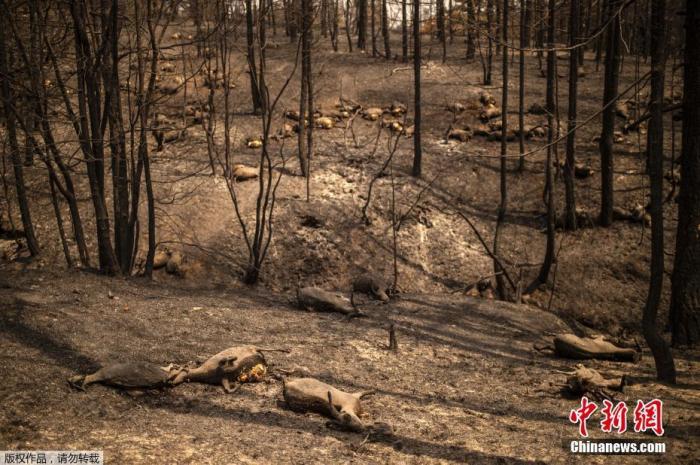China News Service, August 13th. According to a report by the Greek "China-Greek Times" on the 12th, in previous years, August was a suitable season for a leisurely holiday on the Greek islands.
However, this year, with extreme high temperatures first causing "hellish" wildfires, and then severe weather bringing hail and heavy rains, coupled with the rebound of the new crown epidemic, Greece is facing unprecedented challenges.
At present, forest fires are still raging in many parts of Greece, and a large number of houses have been burnt down.
A Coast Guard spokesperson said 10 ships were waiting in the north of Evia, ready to evacuate more people when needed.
Extreme heat hits Greece
Horrible forest fire devours homeland
According to reports, in early August, the "heat wave of the century" continued to ravage Greece, with temperatures continuously exceeding 40°C, even reaching 46°C in some areas.
This is the worst extreme high temperature weather faced by Greece since 1987.
Under the influence of extreme high temperature, on the evening of August 3, a wildfire broke out in Valibobi, the northern suburb of Athens.
The Greek authorities evacuated the crowd urgently.
In the following 24 hours, 118 fires broke out across Greece.
Among them, the fires in Waribobi, northern Evia, ancient Olympia ruins and Messinia were particularly strong.
Fire brigades from all over Greece have devoted themselves to fire fighting and rescue operations.
The Greek people also spontaneously provide firefighters with drinking water, food, clothing and other daily necessities.
In addition, the Greek government also made a request to the EU's civil protection mechanism, and many countries in Europe and the Middle East sent firefighters, helicopters and fire trucks to Greece for assistance.
On August 12, Greek Prime Minister Mizotakis described the devastating wildfire in Greece as the biggest ecological disaster in Greece in decades.
On August 11, local time, on the second largest island of Greece, Evia, the shepherd found a charred goat in a burnt forest.
According to reports, due to the extreme high temperature weather, the Greek wildfires that have lasted for many days are still raging, and there have been many fires across the country.
The heat wave has not subsided
Hail and thunderstorms are coming
However, the firefighting work in Greece has not yet ended, but storms and hail have swept through again.
On August 6, hail fell from the sky in parts of Evros.
Alexandroupolis also ushered in a strong storm, hail hit the Decelos and Macri areas.
According to local people, the size of the hail is "the size of a walnut."
On the afternoon of August 11, storms and hail occurred again in parts of Greece.
There was a tree in the square in the center of Larissa that was split in half by the strong wind.
At the same time, the Kavala area has been closed since August 10 due to hail and heavy rainfall.
Many cars, solar water heaters, gardens and houses were damaged.
In the Attica region where the capital Athens is located, lightning has also caused many fires.
Fortunately, with the help of heavy rain, the fire did not spread.
Heavy rainfall occurred in the central, southern and northern suburbs of Athens.
On the night of August 11, the northern and central parts of Evia, which had just been hit by wildfires, also encountered severe weather such as thunderstorms and heavy rains.
According to the forecast of the Meteorological Department, the weather in Greece will improve in the next few days.
But in central Macedonia, Thessaly, the Sporades Islands, central Central Greece, and Evia, there will be partial rainfall.
Other areas of the Greek mainland will also experience strong local rainfall, and stormy weather will occur on the Peloponnese Peninsula.
(Zhu Tianhao Cai Ling)

